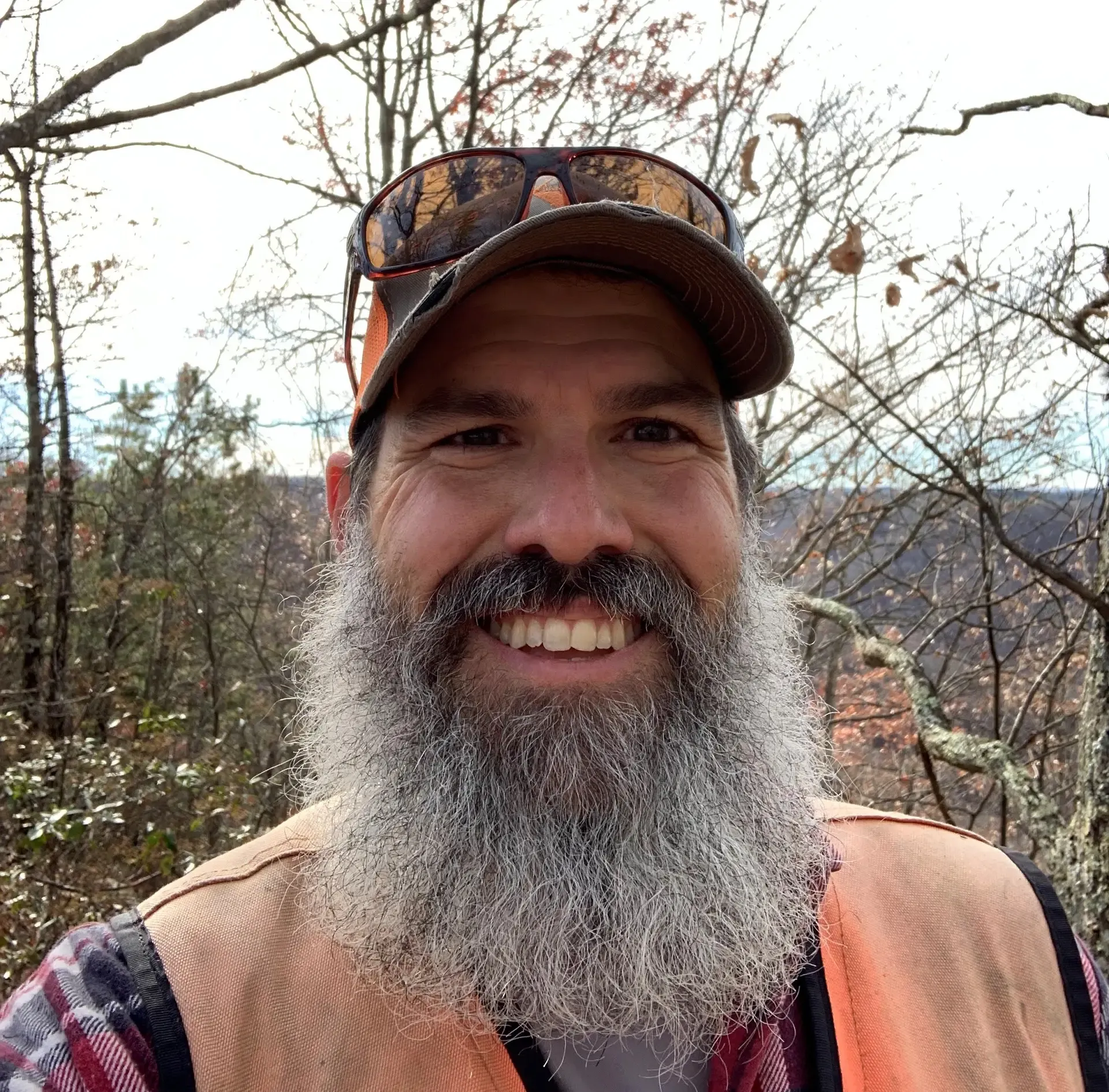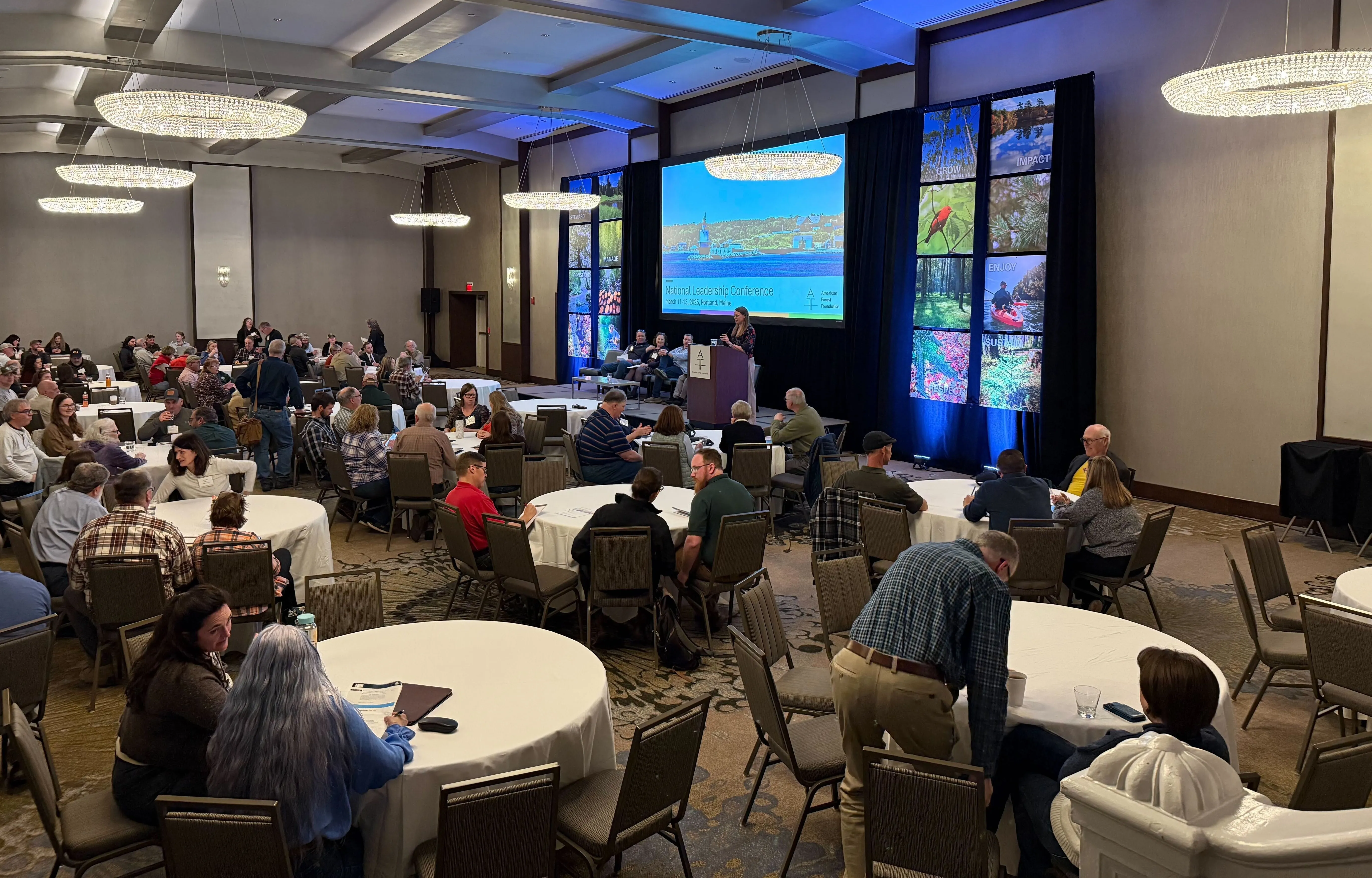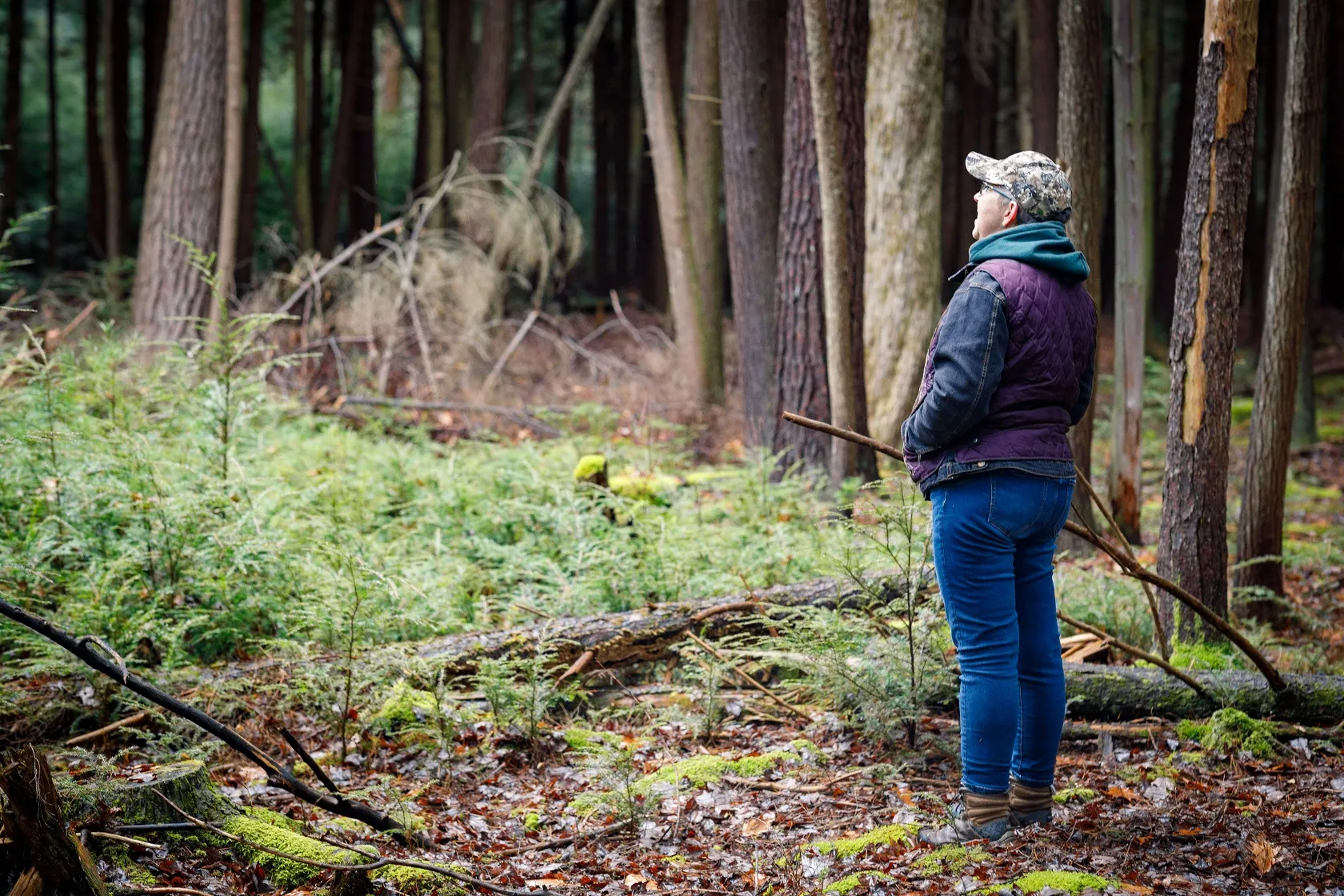Forester Spotlight: Isaac Slone
When you ask a landowner who they trust and go to to learn more about their woods, the frequent answer is their forester. Whether they are experienced stewards of their forest or just trying to figure out where to even begin, landowners go to foresters with their goals for their land and trust their forester to guide them along the process.
The Family Forest Carbon Program, developed by the American Forest Foundation and The Nature Conservancy to help family forest owners to improve forest health and address climate change, wanted to help landowners overcome this barrier to action. Take a second to meet one of our staff foresters who you’ll often find walking the trails with family forest owners in West Virginia, Isaac Slone.
Isaac Slone
State: West Virginia
Educational Background: A.A.S Forest Management Technology (Hocking College); B.S. Forestry (West Virginia University)
Isaac has always been fascinated by forests and astounded by their importance to our existence. He’s passionate about learning about trees, forests and the systems in which they operate, and continues to take every opportunity he can to continue learning.

Before Isaac joined the Family Forest Carbon Program, he was responsible for forestry activities related to timber harvest planning, administration of timber harvest operations, and other timberland management activities predominantly in the coalfields of West Virginia, where he has resided for the last 13 years. He is registered and licensed to practice forestry in the state of West Virginia.
“I get to see a lot of things that few people in our society get to see and form relationships with people who want what is BEST for their land.”
Working with family forest owners through the Family Forest Carbon Program gives him the opportunity to share what he’s learned, and continues to learn, with others. Through sharing these learnings, Isaac is able to assist forest owners in making sound stewardship decisions that will allow them to realize the potential for their forest and accomplish their individual goals.
Related Articles

January 15, 2026
2026 American Forest Foundation National Leadership Conference
The American Forest Foundation’s National Leadership Conference brings together leaders, family forest landowners, and advocates from across the country for meaningful connection, learning, and collaboration. The conference is designed to empower participants to strengthen conservation impact on family forest lands, whether on their own property or through work with family forest landowners.

December 18, 2025
Improving Wildlife Habitat with the Family Forest Carbon Program
For many landowners, spotting a fox, songbird, or other wildlife on their property is one of the highlights of spending time on their land. In this post we look at some examples of management practices you may see in your FFCP forest management plan and how they help create the ideal conditions for certain wildlife species.

December 16, 2025
Family Forest Carbon Program's First Ever Credits Delivered to REI Co-op
Today, REI becomes the first buyer to receive carbon credits from the Family Forest Carbon Program (FFCP), a high-integrity forest carbon project designed for small-acreage landowners.